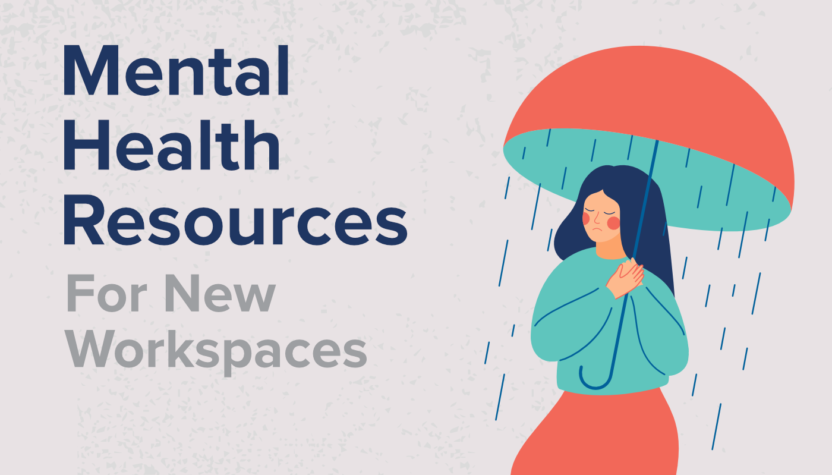If you’re experiencing a mental health emergency, please call 1-800-273-TALK (8255) to reach a 24-hour crisis center, text MHA to 741741, call 911, or go to the nearest emergency room.
Everyone faces challenges that can impact their mental health. As the world and workspace continues to experience change, it’s good to take a pause and address the emotions you may be experiencing. Mental Health America created Tools2Thrive, which offers information on how to talk about mental health along with exercises to support your well-being and resilience in times of change. We’ve put together some mental health resources to help you in new workspaces.

If you’re adapting to a new workspace, try these tips that will help support your mental and physical health:
Realize what you can control
There’s a lot of uncertainty and limitations that are affecting everyone’s lives; however, there are still things you can control.
Movement
At Ergotron, we believe movement is a key component in everyone’s lifestyle. While exercise is beneficial, it doesn’t make up for sitting time. Breaking up sedentary periods of your day is important, so if you’re at a chair, take frequent breaks to get up and stretch. If you’re facing a heavy meeting day, be sure to stand and walk around your home for a few minutes. If you’re gaming, stand up while harvesting fruit or waiting for a new battle to start. These small amounts will add up and positively impact your mental health.
What you consume
With more time at home, it’s easy to dip into the snacks more frequently. Be sure to balance the types and portions of meals you eat. Additionally, food isn’t the only thing that creeps in. There’s a lot changing all over the world and breaking news seems to happen every day. Be cautious on how much media you consume and make sure it isn’t causing additional anxiety.
Your immediate environment
As there’s less to do outside your home, take the opportunity to reorganize and clean. Ideas include digitizing old documents and photos, going through that junk drawer, or deciding to finally work on that cable management project behind the TV. You can make responsible choices on when and how to leave your home based off your local government’s recommendations.

Tips for success
Many people had to make abrupt changes to their existing routines. Some of these new routines may be helpful and others not. Now is a great time for evaluation.
Start small
Changing everything at once likely won’t last long. If your goal is to add more movement into your workday, try scheduling small breaks in your calendar to spend 1-2 minutes walking around your workspace. Eventually, you can build from this change and find ways to follow the Sit-Stand Switch™ and alternate positions every 30 minutes.
Add to your existing habits
You likely have routines you’re already doing that can be modified to be more productive. For example, if you already check your email in the morning but your goal is to get to inbox zero, start with today’s emails and do it every day. As you get into this routine, you can go back and clear the old emails with this newly learned habit.
Reward yourself for small victories
Set goals and celebrate them when they’re complete. If you kept your desk clean all week, celebrate it! Do something you enjoy that still aligns with your goals.
Missed days happen
Making change is difficult. It takes, on average, 66 days for a new behavior to become a habit. If you miss a day, use it as a learning opportunity to understand what happened and try again the next day! The good news: once you have good habits, it takes just as long to learn bad habits.
Mental health screening
Just as you would get screened for an infectious disease or other illnesses, there are tools to help you understand yourself. Many of them are free online. Mental Health America provides free tests for depression, anxiety and other common mental illnesses. These tests assess your current mood and can help you identify what you’re feeling. Best yet, they are anonymous and don’t require you to have an account.
Just like your physical health, mental health is highly complex. We want to help by sharing tools to help our employees and customers thrive, while recognizing that this is a serious issue that may need assistance from a qualified medical professional. We hope these mental health resources for new workspaces are helpful. For more information and more tips, visit https://www.mhanational.org/mental-health-month.



